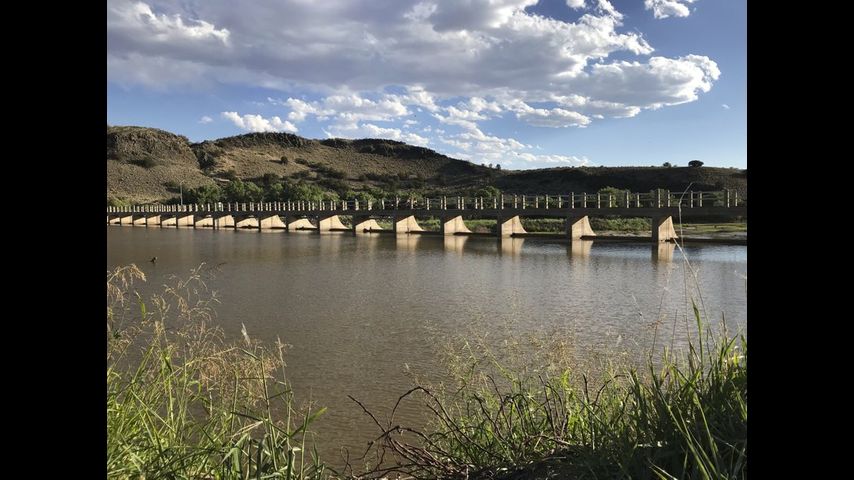New Mexico funds could help revamp management of Rio Grande
By SUSAN MONTOYA BRYAN
Associated Press
ALBUQUERQUE, N.M. (AP) - New Mexico lawmakers are considering setting aside $20 million that could be used as seed money as water managers, municipalities and farmers scramble to find ways to reduce groundwater pumping that is at the center of a high-stakes legal battle.
The fight over the Rio Grande has pitted Texas against New Mexico as demands increase and drought persists. It will be up to a special master appointed by the U.S. Supreme Court to eventually decide how New Mexico goes about ensuring enough of the Rio Grande flows south to users in Texas and Mexico.
Right now, the system is out of balance, and Texas is arguing that New Mexico should be forced to reduce its pumping by as much as 60%. That would be equivalent to more than half of the water supplied annually to residents in Albuquerque, the state's largest city.
Such a reduction would be disastrous for users in southern New Mexico, says John D'Antonio, New Mexico's top water engineer.
He has spent weeks testifying before lawmakers, explaining that prioritizing funding to find new ways to reduce groundwater pumping along the lower Rio Grande could be an opportunity for New Mexico to show Texas and federal officials it's being proactive.
The seed money would be used over three years for a combination of projects, from paying farmers to voluntarily fallow their land at certain times to efforts aimed at recharging the aquifer connected to the river. Other initiatives could involve importing more water.
"Reducing depletions in New Mexico will require a significant financial contribution and while this investigation could help determine whether it's economical and politically feasible for the local water users to contribute a local cost share, the burden of solving this problem cannot be put solely on their backs," he told The Associated Press Friday.
The state will need to make a longterm commitment, he said.
About 85% of the water being pumped along the lower Rio Grande goes to irrigate the nation's most productive pecan orchards, chile and onion fields and other crops. The city of Las Cruces, New Mexico State University and electric utility Public Service Co. of New Mexico are among other major users. They have proposed paying into a fund that could be used for rotational fallowing and other efforts to address problems along the river.
Attorneys for the one of the largest irrigation districts in the region have expressed optimism for the plan, saying it signals a new era within the state engineer's office that could result in partnerships focused on cooperation rather than litigation.
The Elephant Butte Irrigation District already has been looking at everything from stormwater capture to desalination of brackish groundwater and temporarily fallowing. But officials there agree with D'Antonio, saying the agriculture community alone cannot bear the full burden.
Gary Esslinger, manager of the irrigation district, recently testified before Congress on legislation that would funnel money toward research, infrastructure and technology for New Mexico and other western states to secure water resources in the face of rising average temperatures and unpredictable precipitation.
"The steps being taken in the southern New Mexico region are key to how the rest of the state of New Mexico and the rest of the arid West will deal with drought and changing climate in the future," Esslinger said.
Still, some advocates say New Mexico lawmakers need to boost funding for the state's water management agencies to improve planning, collect more data and ensure the state doesn't violate its compact delivery obligations. They point to a high vacancy rate within the state engineer's office, saying more workers are needed to deal with a backlog of water rights cases, for example.
D'Antonio said he's trying to rebuild his agency following nearly a decade of austere state budgets and is hopeful the Legislature understands the importance of securing New Mexico's water resources moving forward.
"My feeling is there's not a more important issue for an arid state like New Mexico than its water issues," he said. "You start and stop with water. If you don't have water, it really puts a kibosh on everything else that we do from an economic standpoint."
Copyright 2020 The Associated Press. All rights reserved. This material may not be published, broadcast, rewritten or redistributed.





